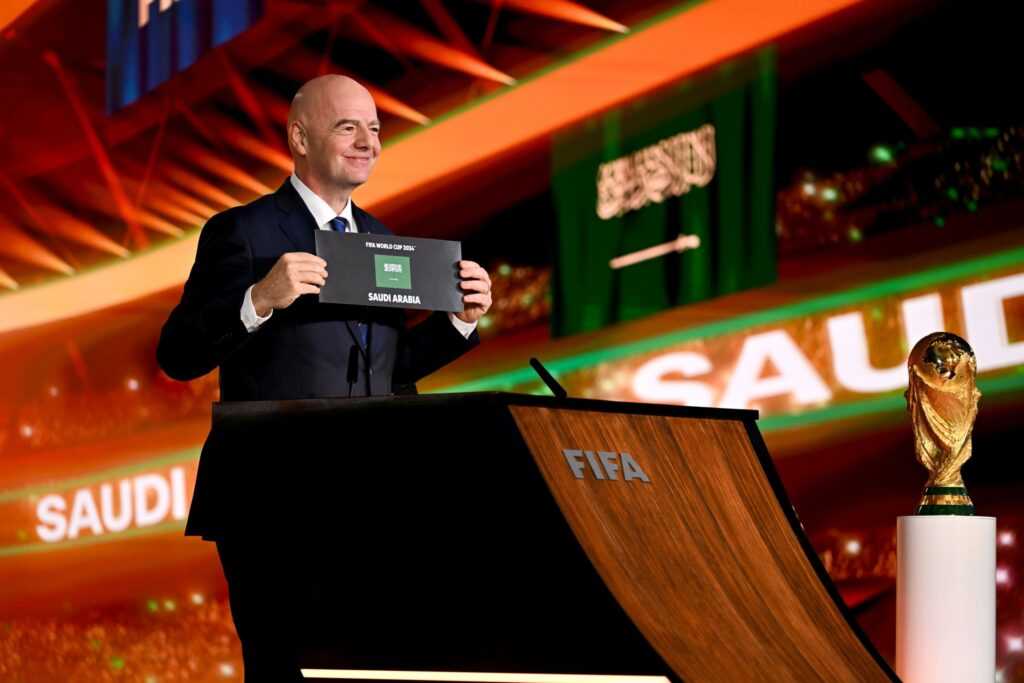
Saudi Arabia has officially been selected as the host nation for the 2034 FIFA World Cup. The announcement came after a vote during FIFA’s Extraordinary Congress, where it was also decided that Spain, Portugal, and Morocco will jointly host the 2030 World Cup. Representatives from 211 FIFA member nations participated in the vote, and the decision was almost unanimous, with only Norway abstaining due to concerns over FIFA’s bidding process.
FIFA Faces Criticism Over the Decision
While FIFA hailed the selection as a step towards global growth and improvement, the decision has faced severe backlash, particularly regarding Saudi Arabia’s human rights record. Human rights organizations, including Amnesty International, have condemned the move, arguing that it legitimizes a country with a controversial record on labor rights and freedoms. Steve Cockburn from Amnesty described the decision as “reckless,” warning that workers in the country could be at risk due to the lack of meaningful reforms.
Human Rights Concerns and FIFA’s Response
FIFA President Gianni Infantino defended the choice, claiming that the organization trusts Saudi Arabia to make progress on human rights issues during the World Cup. He also emphasized that the event would bring about positive changes in the region. However, critics, including the Football Supporters’ Association, expressed concerns about the experience for fans, especially for LGBTQ+ supporters, given the country’s strict laws against LGBTQ+ rights.

The Debate Over “Sportswashing”
The selection of Saudi Arabia has reignited discussions around “sportswashing” – the use of international sports events to improve a country’s global image while diverting attention from its domestic issues. The 2034 World Cup’s location is expected to continue to be a contentious issue, as debates about human rights, freedom, and the integrity of international sports events unfold.





















